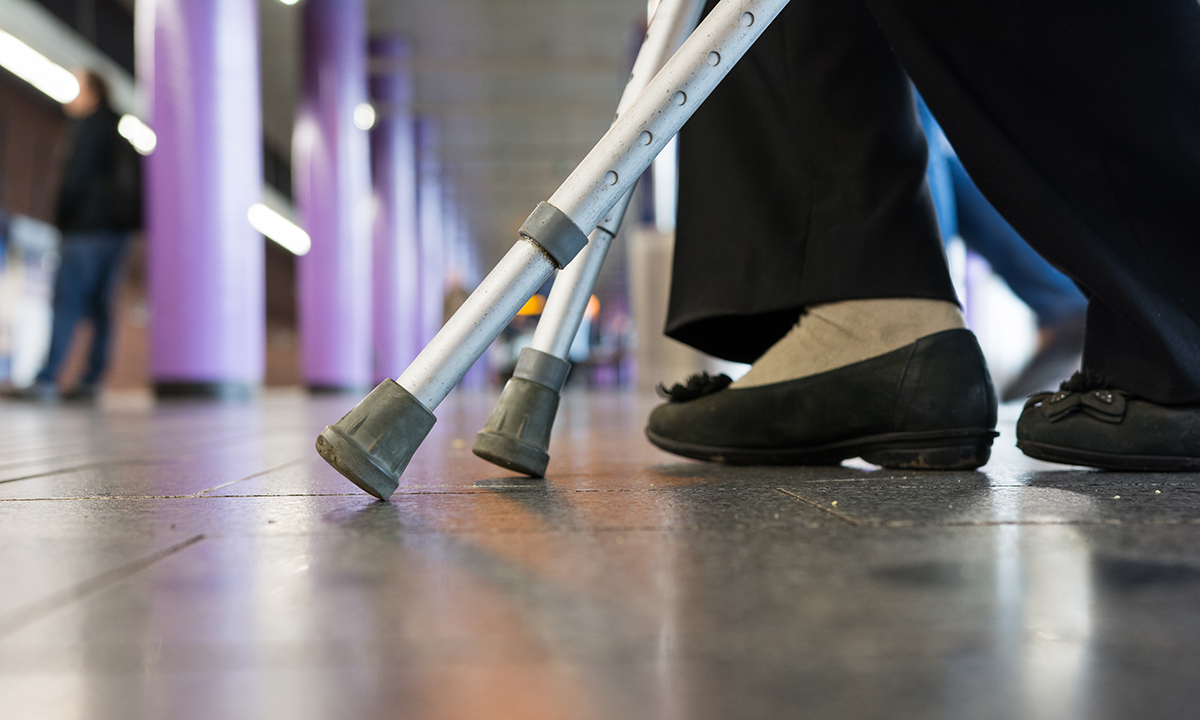FRAILTY in the elderly has long been a core concept in geriatric medicine, but it’s one that has been largely ignored in other medical disciplines. That’s begun to change over the past few years, particularly in primary care and emergency medicine, as populations age and clinicians and policy makers begin to realise how frailty affects resources, treatment decisions and prevention strategies.
What is frailty? It’s a lot more than sarcopenia, says Dr Elsa Dent, a Research Fellow at the University of Queensland and co-author of a new article on identifying frailty in the emergency department (ED).
“It doesn’t have a set definition per se, but there are two main ways to identify it. One is the Fried [frailty] phenotype [assessment], which measures five physical components, such as grip strength or walking speed. The other is the Rockwood cumulative deficit index, which measures 92 different variables that increase in prevalence with age. Frailty is multidimensional, it’s not just physical. It’s psychosocial, nutritional, it’s to do with lifestyle, finance, pretty much everything.”
In their article published in the journal Age and Ageing, Dr Dent and her colleagues describe and validate a streamlined frailty index to be used for triaging patients in ED.
“What’s happening in ED is that we’re getting a lot of older people coming through. As our population ages, we’ll be getting even more, and seeing more frailty. Our health system needs to be prepared for this large number, because people who are frail have a disproportionately high use of the health system.”
She says that, traditionally, clinicians “eyeball” how frail a person is, rather than use an objective measure.
“Doctors will think, ‘this person looks frail, she probably wouldn’t survive surgery, so I’ll refer her to palliative care’. But it’s a subjective call. What a geriatrician might consider frail may be different to what an orthopaedic surgeon or a GP thinks of as frail. We’ve got to have an objective tool to properly measure it.”
Professor Renuka Visvanathan, a leading expert in frailty and Clinical Director of the Aged and Extended Care Services at Adelaide’s Queen Elizabeth Hospital, says that understanding a person’s frailty is key to how they are managed in a hospital setting.
“If someone’s going to be admitted, it’s important to know how vulnerable they are to certain stressors. For example, if a person has a urinary infection, they’ll be more likely to develop delirium if they’re frail. They’ll be more vulnerable to certain bad outcomes that we can predict and plan for to minimise risk. If a person’s very frail, you don’t want to be shifting them around the hospital too often, you may want to minimise bright lights and noise, and even the treatment may be guided by their level of frailty.”
She says that, in Australian EDs, patients are not yet systematically classified according to a frailty index, but there is clearly an emerging interest in doing so.
“I don’t think we’re yet at the stage where we can say for certain how we should be doing it. But intuitively we know we should be trying to identify people at risk. We need to give clinicians tools and strategies to use and follow. There’s a bit of work that still needs to be done to develop guidelines and tools.”
Professor Visvanathan says that maybe even more important is to raise awareness of frailty in the community.
“GPs certainly should be thinking about frailty, how to prevent it, and how to identify risks that are remediable. Treatments are physical exercise, appropriate nutrition and medication prescribing, and dealing with cognitive issues. It’s the basics, it’s about developing a good lifestyle.”
Dr Dent agrees that primary care is critical in managing frailty.
“What we’re doing in Queensland is trying to work with primary care to screen for frailty, and checking what tools are best for identifying frailty without them being too onerous for GPs. Frailty screening is an issue that’s gradually coming to the attention of policy makers here, although we’re years behind what’s happening in Europe.”
She notes that in England, GP contracts mandate routine frailty identification and there is an automated electronic frailty index which is data-mined from GP records of diagnosis and treatment codes. In Australia, it’s not yet possible to do this, as the appropriate data can’t be extracted from patient records, Dr Dent says.
But the ideal, Professor Visvanathan says, would be if a patient’s frailty index was known before they present to the ED.
“That way ED physicians would have a better idea of what change there has been. There should be a focus on frailty in ED, but ideally it should be even more of a focus in primary care because that’s where people are spending their time, out in the community.”
To find a doctor, or a job, to use GP Desktop and Doctors Health, book and track your CPD, and buy textbooks and guidelines, visit doctorportal.

 more_vert
more_vert
The frailty index shouldn’t only apply to elderly patients….
Many younger people with chronic illnesses & disabilities are actually more frail than the average elderly person, yet are not treated as such, by the medical community or by the general public. (I know this as fact, because I am one of those younger people, with multiple co-morbidities, but I get treated as though I’m as healthy & able as any other person – hint: I’m not!)
I like the scale below and I believe ambulance now use it at times.
I think its very useful to assess before considering interventions because of frailty’s effect on prognosis, surgical recovery, tolerance of drug interventions and overall survival
https://www.google.com.au/url?sa=t&rct=j&q=&esrc=s&source=web&cd=5&cad=rja&uact=8&ved=0ahUKEwjAit3434HYAhXFjJQKHaFhCmQQFghHMAQ&url=http%3A%2F%2Fcamapcanada.ca%2FScale.pdf&usg=AOvVaw2FhhRI4lXkf6Dr773UGM3a
Imagine a conversation with a family that goes along the lines “your parent has a high frailty index, and we feel we can’t treat them” instead of “your parent probably won’t make it through surgery so we feel it inappropriate to treat them.”
An eyeball assessment is much more humane than an index card.